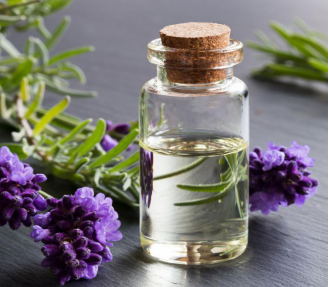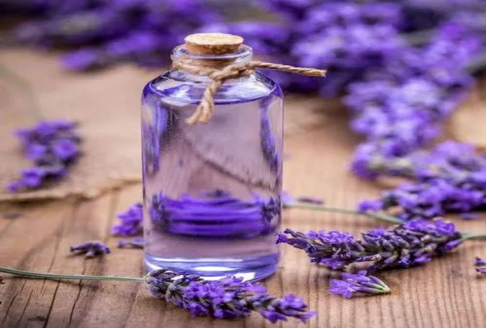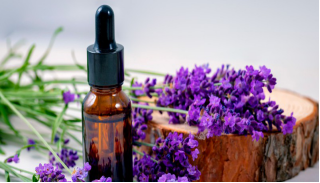The Introduction of Lavender oil
Lavender essential oil is the most used essential oil in the world today, but the benefits of lavender were actually discovered over 2,500 years ago. Because of its powerful antioxidant, antimicrobial, sedative, calming and antidepressive properties, lavender oil perks abound, and it’s been used both cosmetically and therapeutically for centuries. The Egyptians used lavender for mummification and as a perfume. In fact, when King Tut’s tomb was opened in 1923, there was said to be a faint scent of lavender that could still be detected after 3,000 years. Early and modern aromatherapy texts advocate for lavender’s use as an antibacterial essential oil. The leaves and stems of the plant were used to prepare decoctions against digestive system diseases and
rheumatism, and lavender was valued for its cosmetic purposes. Research shows that the Romans used lavender oil for bathing, cooking and purifying the air. In the Bible, lavender oil was among the aromatics used for anointing and healing. Because lavender oil contains such versatile properties and is gentle enough to use directly to the skin, it’s consider a must-have oil, especially if you are just getting started with using essential oils for your health. Science has only recently started to evaluate the range of health effects that lavender essential oil contains, but there’s already an abundance of evidence that points out the amazing capabilities of this oil. Today, lavender is one of the most popular essential oils in the world — and for good reason. People are beginning to catch on to lavender oil benefits for your body as well as your home.
The Benefits of Lavender oil
- Antioxidant Protection Free radicals, like toxins, chemicals and pollutants, are arguably the most dangerous and most common risk factor for every disease that affects Americans today. Free radicals are responsible for shutting down your immune system and can cause unbelievable damage to your body. The body’s natural response to free radical damage is to create antioxidant enzymes — especially glutathione, catalase and superoxide dismutase (SOD) — that stop these free radicals from doing their damage. Unfortunately, your body can actually become deficient in antioxidants if the free radical burden is great enough, which has become relatively common in the U.S. because of poor diet and high exposure to toxins. Thankfully, lavender is a natural antioxidant that works to prevent and reverse disease.
- Supports Brain Function The neurological benefits of lavender don’t stop at its ability to treat depression and boost mood. Research also shows that it serves as a potential natural treatment for Alzheimer’s disease. Studies conducted on rats and mice show that inhaling the oil’s vapors can help reduce brain oxidative stress and improve cognitive impairment. To support the nervous system with lavender oil, diffuse it at home, inhale it directly from the bottle or apply it topically to the temples and back of neck.
3.Treats Burns and Cuts Widely known for its antimicrobial properties, for centuries lavender oil has been used to fight various infections and combat bacterial and fungal disorders. In fact, almost 100 studies have been conducted establishing this benefit of lavender over and over again. Research shows that it speeds the healing of burns, cuts, scrapes and wounds — and a big part of this is because of its antimicrobial compounds. For burn relief and to treat cuts, scrapes or wounds, mix three to five drops of lavender oil with ½ teaspoon of coconut oil, and apply the mixture to the area of concern. You can use your fingers or a clean cotton ball.
The Uses of lavender Essential oil
- Natural Perfume
You can try adding pure oil directly to your skin, or you can dilute oil in water or with a carrier oil for a more subtle scent.If you’d like to rub the oil right onto your skin, try adding 2–3 drops into your palms and then rubbing your hands together. Then rub it directly onto your skin or hair.You can also try adding 2 drops to a spray bottle with about ½ cup of water. Shake up the spray bottle, and then spray whatever you’d like.Consider combining lavender oil with other relaxing oils, likecedarwood essential oil or frankincense essential oil. Another great way to use lavender oil as a natural perfume is to add it to your shampoo or create your own, like I did with this homemade coconut lavender shampoo.
- Non-Toxic Air Freshener
The same way you use lavender oil as a perfume, you can use it around your home as a natural, toxic-free air freshener. Either spray it around your home, or try diffusing it.
To create a relaxing atmosphere in your bedroom before you fall asleep, try spraying a lavender and water mixture directly onto your bedsheets or pillow.
You can try the same method in your bathroom as well and also on your bath towels. Before taking a relaxing bath or shower, spray your towel with lavender so its calming scent is waiting for you when you step out of the shower.
- Natural, Chemical-Free Lip Balm
Lavender oil is excellent for preventing sunburns on the lips and also healing chapped, dried lips. Try adding a couple of drops of oil to shea butter, jojoba oil, coconut oil or another “carrier oil” and then rubbing it into your lips for protection whenever you will be in the sun.If you have a sunburn in other areas on your body, try using the same method to heal the skin more quickly and prevent itchiness and pealing that can result after a bad sun burn.My homemade lavender mint lip balm is nourishing and hydrates dry, cracked lips quickly.
- Remedy for Stomach Discomfort
Many people find the scent of lavender to be soothing to the stomach. If you are feeling nauseous or know that you are going to be traveling in a car or plane and are prone to motion sickness, spray some on your skin and clothes, or rub it into your temples, neck and palms.
Risks and Side Effects
- Medication Interactions
If you are already taking any prescription medication for sleep-related disorders or depression, be cautious of the fact that Lavandula can increase the effectiveness of these medications. Even if you use an over-the-counter sleep aid or any type of sedatives (even cough or flu medicine), keep in mind that lavender makes many people sleepy and even somewhat drowsy, so it’s best to not combine lavender oil with other medications or sleep-related supplements. If you are planning on undergoing anesthesia in the near future, you will also want to avoid using lavender oil.
- Pregnant Women
Research suggests that lavender is generally considered safe for women who are pregnant and nursing. Because it can have a relaxing effect on muscles and can also affect hormone levels, use lavender with caution in your third trimester. It’s best to speak with your doctor about use of any essential oils when pregnant, since it has not been guaranteed that these are safe at this time.
- Ingesting Lavender Oil
Studies have primarily looked at the effects of using lavender oil topically on the skin or through inhalation. There have been no negative symptoms found when three drops of oil are mixed with a carrier oil and applied directly to the skin. A 2013 evidence-based article, however, highlighted that lavender can be ingested at a large dose of 80 to 160 milligrams without adverse effects, except for minor gastrointestinal symptoms. To avoid gastrointestinal irritation, keep internal use to a minimum, and be careful if you have a sensitive digestive system. There are no known food interactions of lavender oil at this time.
If you want to know more about lavender essential oil, please feel free to contact me.We are Ji’an ZhongXiang Natural Plants Co.,Ltd.
TEL:17770621071
E-mail: bolina@gzzcoil.com
Wechat: ZX17770621071
Post time: Mar-30-2023





